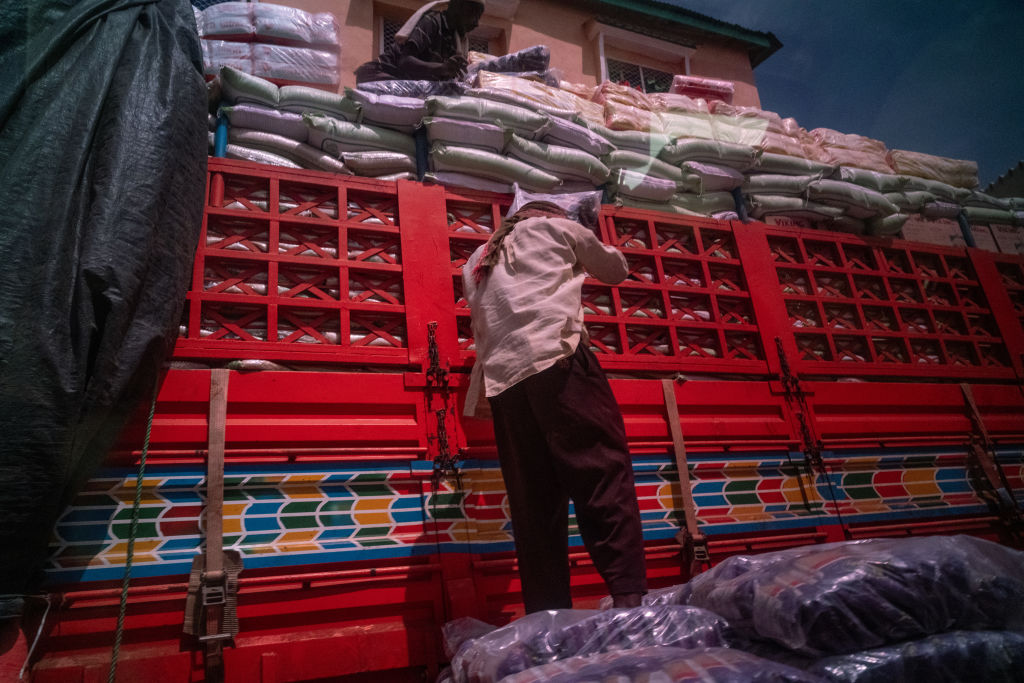Somalia Seeks to Dismantle al-Shabaab Financing Network
ADF STAFF
On January 16, the Somali government announced a major victory. Its military had liberated Harardhere, an al-Shabaab stronghold on the Indian Ocean coast that the terrorist group had held for a decade.
Formerly a base for pirates who hijacked and ransomed ships at sea, Harardhere was a significant source of revenue for al-Shabaab, which had used the port since 2011 to generate revenue by taxing imported goods.
After he was elected in 2022, Somali President Hassan Sheikh Mohamud declared a “total war” against the terrorist group and vowed to cut off the group’s funding.
“Al-Shabaab will not be defeated by the gun alone,” he wrote in an October article published on a Somali news website. “We must use military force, corrective ideological education and starve them of their illicit financing.
“I reiterate my call to the Somali people to have faith in our collective efforts and to bravely resist cooperating with al-Shabaab in any shape or form, regardless of the cost.”
With its strong ties to al-Qaida senior leadership, al-Shabaab has financed incessant attacks against the Somali people. There is also some evidence it provided money to extremist groups in Nigeria and Mozambique, according to Mohamud.
Somalia has waged a military offensive against al-Shabaab since July 2022. In the past several months, that offensive has expanded to include attacks at the heart of al-Shabaab’s vast financial streams.
Experts say it will be difficult to dismantle, considering the group controls about a third of the country, including an estimated 70% of southern and central Somalia. Its 5,000 to 7,000 fighters hold much of the countryside in a suffocating grip.
A report from the Hiraal Institute, a Mogadishu-based think tank, estimated that al-Shabaab collects $15 million a month, mostly through extortion and taxation.
Using intimidation, violence and mafia-like tactics, al-Shabaab raises as much revenue as do Somali authorities.
All major companies in Somalia give money to al-Shabaab in monthly payments and a yearly “zakat,” or tax, of 2.5% of annual profits, the report said.
“Fear and a credible threat to their lives is the only motivation that drives al-Shabaab taxpayers,” the report stated.
The feared Amniyat, al-Shabaab’s secret security and intelligence wing comprised of around 500 to 1,000 operatives, gathers and handles the group’s finances.
Authorities imposed international sanctions on a network of more than a dozen members of al-Shabaab’s finance department in October 2022 for using funds for the smuggling and trafficking of weapons and for recruitment.
Al-Shabaab taxes large and small businesses, hotels, construction sites, real estate developments and the seaport in Mogadishu, where they take cargo ships’ manifests from port officials.
The group extorts thousands of dollars a day through a system of checkpoints on key roads for commerce. The road to Baidoa is particularly lucrative because merchants and humanitarian groups transport food and supplies to sell at a camp for internally displaced people.
The United Nations estimated that a single roadblock generated about $5,000 a day on the road to Baidoa.
Independent researcher Jay Bahadur, whose report on al-Shabaab’s taxation machine was published by the Global Initiative Against Transnational Organized Crime in December 2022, called the group “a deeply rooted structural problem in Somalia.”
“It is an entrenched, mafia-like organization, integrated into almost every facet of society, the economy and government in the southern parts of the country,” he wrote. “It provides basic services, mostly relating to security and justice, and enjoys a degree of legitimacy in some areas.”
In late September, the Somali government announced new measures aimed at crippling the ability of al-Shabaab to raise funds.
In a January 11 speech, Prime Minister Hamza Abdi Barre said the government has closed every known bank account connected to al-Shabaab — roughly 250 accounts in four banks — and shut off cellular and data services to about 70 mobile phones that militants were using to transfer money.
“This was a major victory and was only possible because of the tips of the Somali citizens,” he said. “We are in the process of investigating the amount of the frozen money in the closed accounts.”
It didn’t take long for al-Shabaab to respond with threats to the banks.
Spokesman Sheikh Ali Dheere on January 28 said the group would not “accept” banks giving customer information to “strangers” and called such actions “punishable.”
Omar Mahmood, International Crisis Group senior analyst for East Africa, said Somalia’s military and financial offensive is making a difference, but the biggest challenge remains holding onto gains.
“The make or break is not in the offensive phase but in everything that comes after that,” he told Reuters. “Al-Shabaab is definitely under pressure, but they play a long game.”


Comments are closed.